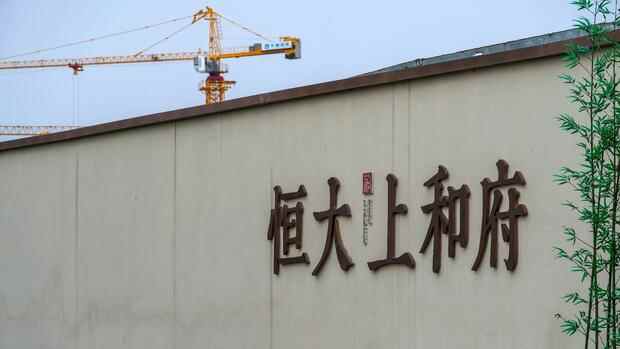Beijing European companies in China are warning of an increasing isolation of the People’s Republic from the world economy. “There are worrying signs that China is turning inward again,” warned Jörg Wuttke, President of the EU Chamber in Beijing. The chamber published a 417-page position paper on Thursday in which it warns, among other things, of the consequences of decoupling for China’s economy and foreign companies in the People’s Republic.
“China’s plan to increase its self-sufficiency will continue to lead to friction with other major economies,” it says. By diminishing the role European companies play in the Chinese economy, China’s innovation efforts would slow down.
Foreign companies played a major role in China as employers, investors and drivers of innovation, said Chamber President Wuttke. “Our concern is: where is our place? Will we be excluded? ”
In the past few months, Beijing had laid a whole series of courses aimed at making the country more independent from the world. China, for example, is relying on the concept of “dual circulation”, which also runs through the five-year plan adopted in March, which is valid until 2025.
Top jobs of the day
Find the best jobs now and
be notified by email.
Imports, especially in high technology, are to be substituted by locally produced alternatives. Where there are no Chinese companies, according to the plan, the products can also come from foreign companies that manufacture in the People’s Republic – but only until China has its own manufacturers.
Business class, economy or cargo hold?
Foreign companies are affected to different degrees, depending on the industry in which they work. In the position paper of the EU Chamber, they are assigned to three categories: business class, economy and cargo space. The companies in the business class therefore include those in those areas in which China needs foreign technology or know-how in order to improve its value chains. These included chemistry and financial services.
Most business-to-consumer companies fall under the economy class, according to the paper. These companies are at least still welcome, but they are exposed to the risk of boycotts, as the German sporting goods manufacturer Adidas recently learned. Companies in industries where China seeks self-sufficiency or wants its national champions to dominate globally will have to sit in the hold if they are let in at all.
The EU Chamber emphasized the importance of the Chinese market for European companies. This year, the business of foreign companies in the People’s Republic went “incredibly well”, said Wuttke. China will continue to grow strongly in the next few years and it is clear among European companies that they have to be in the Chinese market. In a survey by the EU Chamber of Commerce in Beijing, published in June, 59 percent of the companies surveyed said they were considering expanding their business in China. Only nine percent wanted to cancel their investments in China or invest in other markets.
Doubts about China’s future growth path
But there are also doubts about the future growth path. Observers see that the government is currently seeking more control over the growth of the economy. In recent months, Beijing had severely restricted the freedoms of the private sector, not only in the tech sector, but also in other areas such as education. Beijing has also been looking for ways to exclude foreign companies from the market, such as medical devices, according to the EU Chamber.
The companies are also worried about the comprehensive travel restrictions for entry into the People’s Republic, which have been in place since the outbreak of the corona pandemic. China is following a zero-case strategy in fighting the pandemic. Local outbreaks are countered with draconian measures such as week-long curfews for entire districts.
Foreign business representatives can enter China with a valid residence permit. However, upon arrival you have to undergo a two to three week quarantine in a hotel room that you are not allowed to leave during the time. The strict entry requirements mean that many turn their backs on the country completely. The number of expats continues to decline.
European companies also report, according to the EU Chamber’s position paper, that the challenges related to China’s expanded definition of “national security” and its goal of achieving a higher level of self-sufficiency have “increased significantly”.
“We are not guests here, we are an integral part of the Chinese economy,” said Wuttke. “That’s why we have every right to voice our concerns if we think we’ll have problems staying in the game.”
The EU Chamber warned of the consequences of foreclosure. Less diversification will ultimately lead to higher costs and suboptimal solutions. China’s striving to become the market leader in high technologies is also at risk. The exchange of experts is adversely affected. In particular, the new data protection regulations would also mean that foreign companies will conduct less basic research in China.
Companies are also worried about increasing global political tensions. The US has issued numerous sanctions in recent years that prohibit companies from doing business with certain Chinese companies. China, on the other hand, passed a new anti-sanctions law in June. The new rules have been interpreted as allowing China to punish companies in the world’s second largest economy for adhering to sanctions from abroad. This tension could be a reason for foreign companies to leave China and no longer invest in the People’s Republic, warned Wuttke.
More: The EU and the USA want to control tech transfers to China more closely
